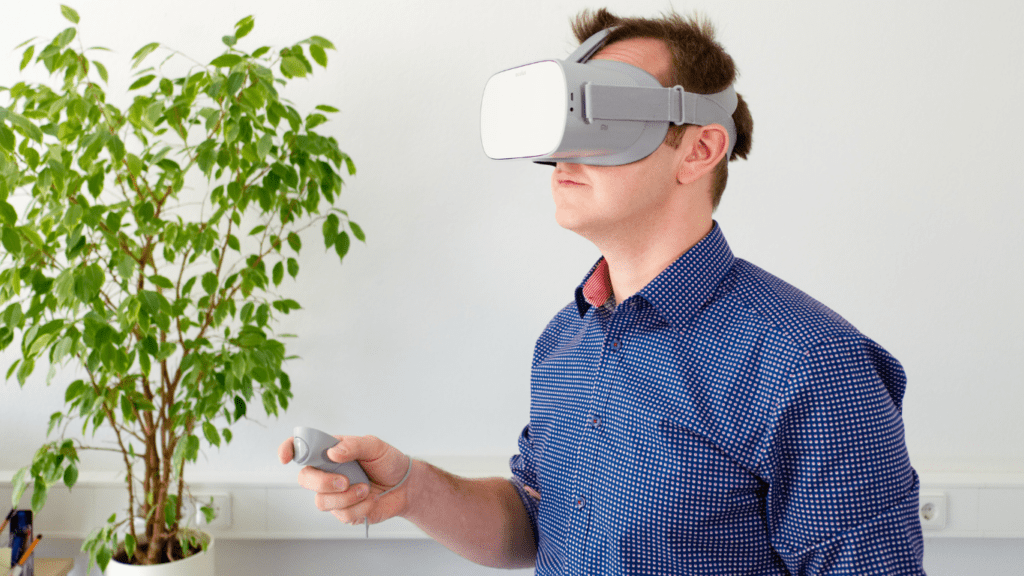Understanding Virtual Reality Casinos
Virtual reality casinos offer a digital transformation of traditional gaming environments. These immersive platforms replicate real-world casino experiences using VR technology.
What Are Virtual Reality Casinos?
Virtual reality casinos are digital platforms where users can interact with casino games in a 3D environment. Players wear VR headsets to enter realistic casino settings, interacting with:
- slots
- poker
- blackjack
in an immersive way. Using VR technology, these casinos provide a sense of physical presence and engagement that online casinos can’t match. Developers continuously integrate realistic graphics, spatial sounds, and responsive interactions to enhance the overall experience. Games like roulette and baccarat often feature interactive elements for added authenticity.
Evolution of Virtual Reality in Gaming
The evolution of virtual reality in gaming has rapidly accelerated. The concept dates back to the 1960s, but significant advancements began in the 1990s with the development of more sophisticated hardware.
VR gaming started gaining mainstream attention in the early 2010s with improved headset technology. In recent years, the affordability and accessibility of headsets like Oculus Rift and HTC Vive have driven VR adoption across various gaming genres.
Today, game developers leverage powerful processors and detailed graphics, transforming virtual reality from a niche interest into an integral part of the gaming industry.
Key Features of VR Casinos

In VR casinos, players find key features that provide an enhanced gaming experience. These features elevate the virtual casino environment beyond traditional online gaming platforms.
Immersive Experience
Players in VR casinos step into 3D environments that replicate real-world casinos. Detailed graphics and spatial audio create a sense of presence. For example, users hear the shuffle of cards and see the gleam of slot machines in great detail. These elements make it feel as though one is in a physical casino, enhancing engagement and excitement.
Interactive Gameplay
VR casinos offer highly interactive gameplay. Players manipulate objects and controls using hand movements tracked by VR devices. Games like blackjack and poker involve realistic gestures, such as picking up and placing chips. This physical interaction increases the sense of realism and heightens the player’s involvement in the game.
Social Interaction
Social interaction in VR casinos mimics real-life interactions. Players communicate with others through avatars in voice chat. These interactions, such as networking with fellow gamers or dealer chats, foster a communal atmosphere. The social dynamics of VR casinos add a layer of connectivity, making them more appealing for those who enjoy engaging with others.
Advantages of Virtual Reality Casinos
Virtual reality casinos offer several unique benefits that transform how players engage with digital gaming environments. By leveraging cutting-edge technology, these platforms provide an experience that surpasses traditional online gaming.
Enhancing User Experience
- User experience in VR casinos is unparalleled due to the immersive environments created.
- Realistic graphics and spatial audio mimic the ambiance of physical casinos, providing players with a sense of presence.
- Interactive features let players use hand gestures to interact with the games, making the experience more engaging and lifelike.
- This level of involvement keeps players captivated and enhances their overall enjoyment.
Accessibility and Convenience
VR casinos excel in accessibility, allowing users to enter a casino setting from anywhere. Owning a VR headset grants instant access to various games, from slots to poker. This convenience eliminates travel and offers gaming 24/7, accommodating different schedules and preferences. Furthermore, VR platforms cater to a global audience, breaking down geographical boundaries that traditional casinos impose.
Innovation in Casino Games
- Innovative casino games thrive in virtual reality, thanks to the dynamic tech environment.
- Developers can create unique gameplay mechanics not possible in physical spaces, such as gravity-defying slot machines or interactive card tables.
- The constant evolution of VR technology pushes the boundaries of creativity in game design, offering players fresh experiences continuously.
- This innovation attracts both new players and seasoned gamblers seeking novel entertainment.
Challenges and Concerns
While virtual reality casinos promise an exciting future, they face several challenges. These issues could affect the widespread adoption of VR casinos.
High Cost of Technology
Virtual reality casinos require expensive technological investments. VR headsets and powerful computers command a significant price. For instance, high-end VR headsets can exceed $1,000. This cost barrier might limit accessibility for many potential users. Unless the price point drops, broad acceptance of VR casinos might remain elusive.
Technical Limitations
Current VR technology has inherent limitations. For example, issues like motion sickness and the resolution of VR displays impact the user experience. The latency in interactions can also disrupt immersion, which is vital for gaming environments. Developers must overcome these challenges to offer a seamless and enjoyable experience to players.
Security and Privacy Issues
Virtual environments pose unique security challenges. Virtual reality casinos must protect users’ financial and personal data in shared spaces. Additionally, ensuring the privacy of players’ interactions and communications is critical. Robust security measures are necessary to maintain trust and safeguard against cyber threats.

 Tayla Christmas brought her creativity and analytical skills to Wild Gamble Greed, helping design the platform’s interactive features and user-friendly interface. Her attention to detail and commitment to delivering a seamless experience for high-rollers ensured the platform became a trusted resource for gamblers seeking strategic and responsible guidance. Tayla’s efforts have been instrumental in building the foundation for Wild Gamble Greed’s success.
Tayla Christmas brought her creativity and analytical skills to Wild Gamble Greed, helping design the platform’s interactive features and user-friendly interface. Her attention to detail and commitment to delivering a seamless experience for high-rollers ensured the platform became a trusted resource for gamblers seeking strategic and responsible guidance. Tayla’s efforts have been instrumental in building the foundation for Wild Gamble Greed’s success.